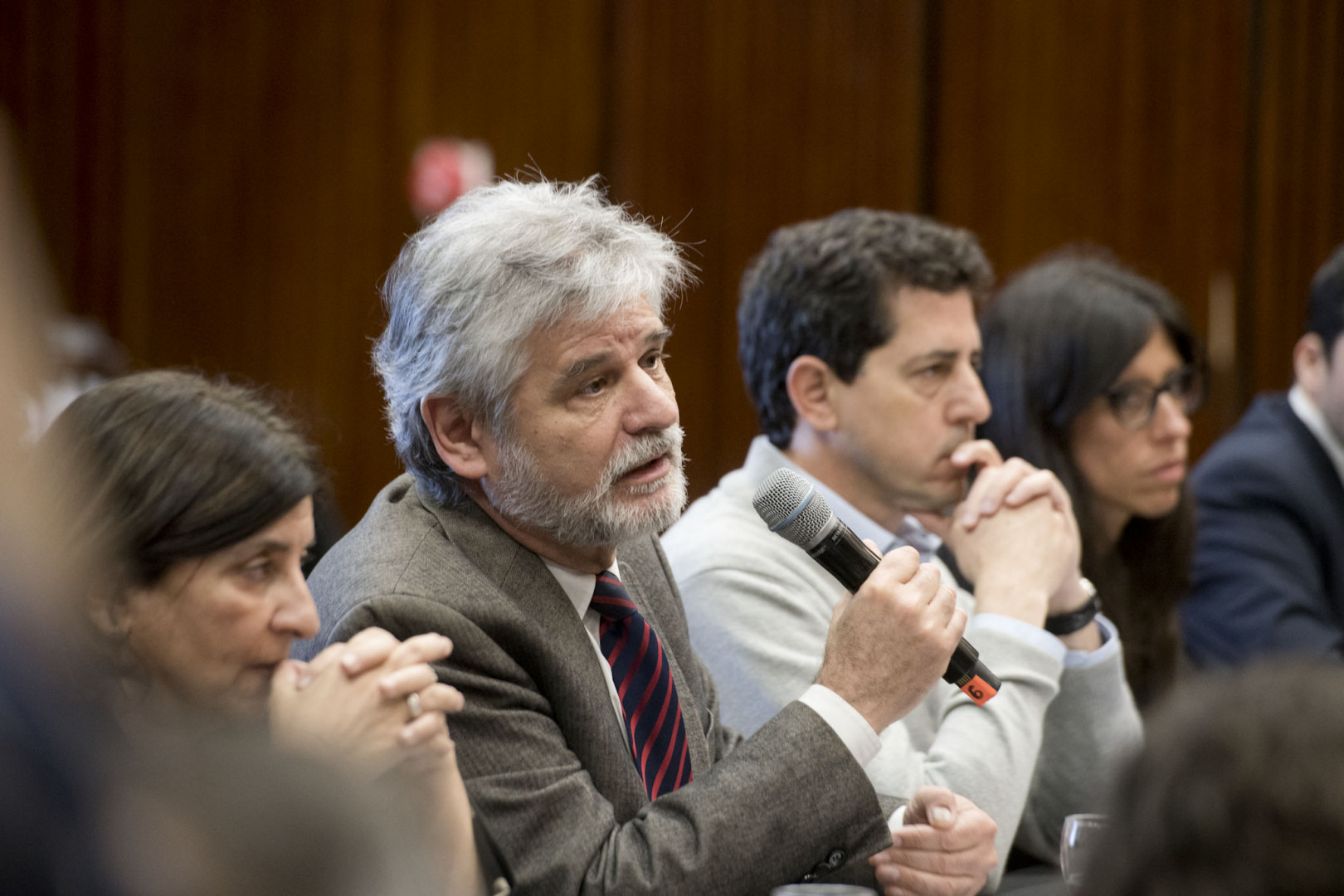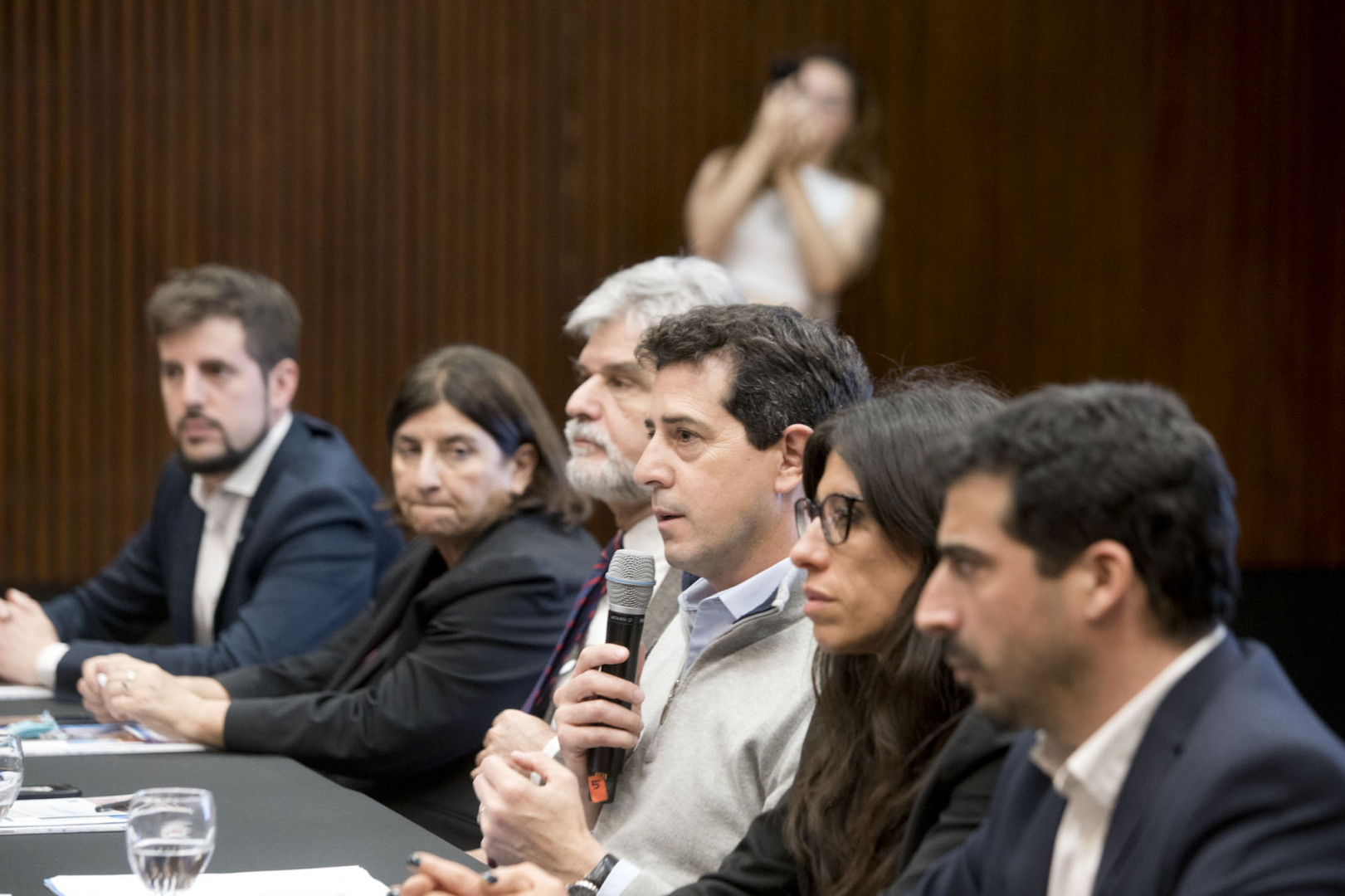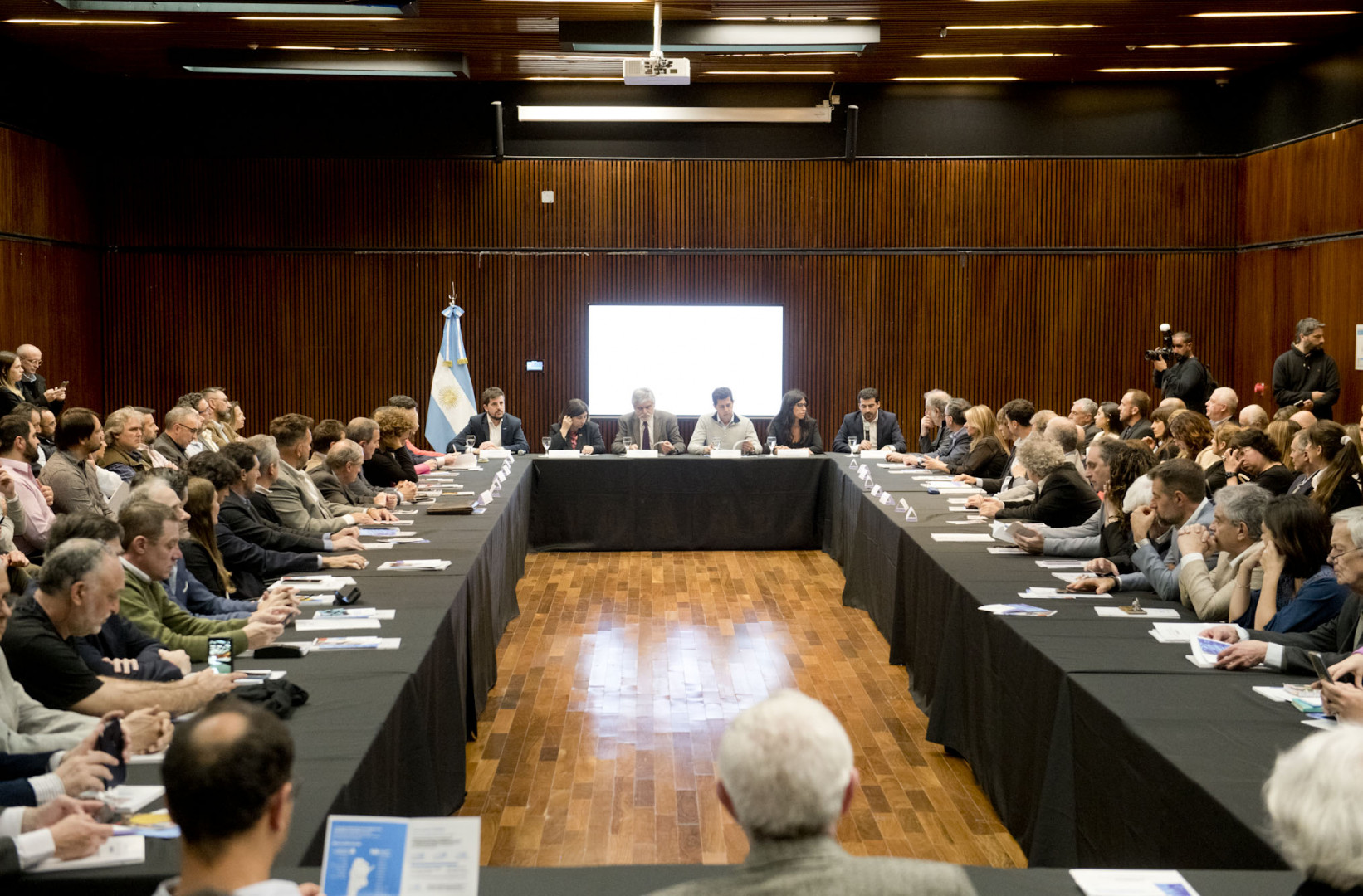The meeting “Innovation and Development in Argentina: Enabling the Future through Public-Private Coordination” was held at the Cultural Center of Science (C3), chaired by the Ministers of Science, Technology and Innovation, Daniel Vilmos, and the Minister of the Interior. Eduardo de Pedro, which was attended by representatives of public institutions and representatives of private sector companies from various productive branches; and coordination with former INTI President and MINCyT Advisor, Rubén Genero. The Minister of Development Planning and Federal Competitiveness of the Ministry of Economy, Jorge Niemi, also attended the meeting.
Vilmos received those present and celebrated the meeting. “There is no possibility of development in our country – which also allows the distribution of benefits to everyone – except through support for science and technology,” the Minister of Science stressed. There is no country in the world that has achieved balanced development and integration of its population without the contribution of science, technology and universities. Those who talk about the privatization of science and technology position as a country model precisely those who make the most investment in science and technology. Public investment must have the ability to create the necessary conditions to attract private investment.
After that, Vilmos mentioned a set of laws “such as financing the scientific technological system and the knowledge economy, which were unanimously approved, showing us the way for science and technology to be a state policy in our country.” We must learn once and for all how to stop pursuing pendulum politics, and see that virtuous examples are those in which the public and private sectors are expressed because each sector makes an essential contribution that complements the other. It is necessary to discuss the transformations that the state must undergo, and how to make it more efficient. The private sector has an important role to play in showing us ways in which we can make meaningful adjustments to state structures, so that all this investment improves the living conditions of Argentine men and women.

For his part, Wado de Pedro said: “We need more pioneering entrepreneurs to give more certainty to the productive matrix. Part of the solutions for Argentina’s future relates to creating a project for national unity.
The Minister of the Interior stressed that “the way out is to agree on a fruitful model of development with federal inclusion” and that “it is time to work on great agreements to think about a great Argentina that includes all of us.” We have unicorns, we have Nobel Prizes, we have a university system, a private and public inclusion system and an education system, which means we have people, men and women, who are outstanding.

Finally, Nunez said: “We wanted to hold a working meeting to exchange and clarify the complexities and challenges we face in formulating the public-private alliance for the development of science, technology, innovation and production and its impact on development.” From the country. Sometimes we notice that we lack the tools to accompany a very dynamic system and that is why this meeting was held. We have to overcome the false dichotomy between public and private and achieve a strong scientific system that grows and expands, offers young people perspectives on the future and in which all investment in technology transfer that has an impact on the productive sector ends. “.
Also participating in the opening were the Undersecretary of the Interior for Regional Development and Equality Policies, Paola Español; Undersecretary for Institutional Coordination, Pablo Nunez; CONICET President, Anna Franchi; and CONICET Technology Liaison Manager, Sergio Romano.
The meeting continued with two discussion panels dedicated to technological innovation and coordination between the public and private sectors. The first committee consists of Sandra Cipolla (SPI); Nicholas Krios (Terragen); Ignacio Noel (h) (murex); and Executive Director of the Sadoski Foundation, Fernando Šapachnik.
In the second session, Diego Buranello (DANONE) presented; Ines Gerbaudo (Gerbaudo); Tommy Karagozian (TN&Platex); Andris Wegdorovitz (Buenovo); INTA Vice President, Nasira Muñoz; and Director of the National Meteorological Service, Celeste Saulo.
Finally, the closure was responsible for Daniel Herrero (Toyota); José Zuccardi (Zuccardi family); Gustavo Grupocopatel (Los Grupo); and Maria Laura Correa (CONICET Board of Directors).





